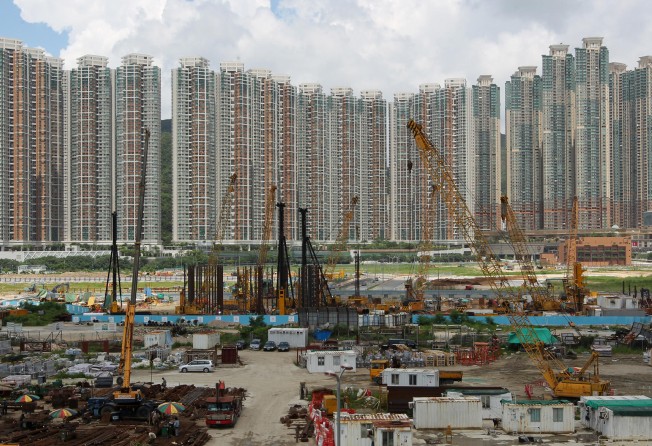We must reform how we price the land we need for new homes

The government recently determined it would proceed with a plan for the development of the Northeast New Territories (NENT).
The plan takes into account comments from developers and private land owners who had urged the government to allow them to participate in the development process. But this is only a first step and there is still a long road ahead before the plan materialises.
Given Hong Kong's expanding population and people's quest for better living environments, demand for housing will always be high. Any shortfall in supply will result in increases in home prices, which further stimulate demand, resulting in a vicious price spiral.
Although administrative measures such as increased stamp duties have successfully dampened demand, the real solution to this price spiral lies in an increase in the supply of homes.
The development of new towns, from Tsuen Wan and Kwun Tong to Tseung Kwan O and Ma On Shan, has provided homes for millions of people. However, new-town development now faces many more hurdles than it did a few decades ago.
More attention is now being paid to environmental and conservation issues, meaning both the government and developers now have to resolve numerous issues not even considered in early developments. We should expect strong protests about the NENT development proposals from environmentalists and the town planning process will be lengthy and meticulous. The development densities of new towns will also be much lower than those of their predecessors, making the cost of land for homes much higher than before.
The current political environment also raises concerns over private sector participation in the new plan.
The government previously intended to buy all private land in the area and then release some land for sale by tender and also develop some land for public housing, rental housing or home ownership scheme projects.
But this proposal attracted much opposition from land owners and, in order to expedite the development scheme and avoid time-consuming legal challenges, the government finally agreed to allow private land owners within the development zone to develop their own land after paying land premiums.
The assessment of those premiums will now be the key to the success of private sector participation. The premium payable in respect of land exchange or lease modification is equivalent to the difference between the value of the site before the land exchange or lease modification (the 'Before' value), and the value of the site after the land exchange or lease modification (the 'After' value). The assessment of both values is carried out by the Lands Department.
Developers routinely criticise the Lands Department for overestimating land premiums and complain that many redevelopment schemes are therefore not financially viable. On the other hand, the government is often accused of colluding with developers by underestimating land premiums.
Most private land within the NENT development area is agricultural land.
In practice, the 'Before' value for agricultural land adopted by the Lands Department is much lower than what is achieved in the open market. If the Lands Department accepts actual transaction prices of agricultural land as the 'Before' value, I believe agricultural land will eventually be bought and sold at much higher prices, as any increase in price will be offset by a correspondingly lower premium payable to the government.
But this is not a satisfactory situation, as it would result in a reduction of public revenue from premium payments.
The assessment of 'After' value is no easier task. Developments in the development zone are still on the drawing board and no flats or land have been sold, which means the selling price of flats in future and the development risk involved are all subjective guesses by both the developers and the Lands Department.
With hugely different views on the assessments of both 'Before' and 'After' values, the resultant premium calculations will be widely divergent as well.
However, since the land tenure system in Hong Kong is basically a "landlord and tenant" relationship, land owners cannot apply to court for determination of land premiums.
Developers are left with the Hobson's choice of either accepting the premium as assessed by the government or abandoning the development scheme.
In order to expedite the NENT development plan and resolve the dispute on premium assessments, perhaps it is time to review the premium assessment mechanism. Standard rates for premium may save the lengthy process of premium negotiation and hence expedite development programmes. Alternatively arbitration, or an appeal to an independent board, may also offer a solution.
Charles Chan is the managing director of Savills Asia Pacific